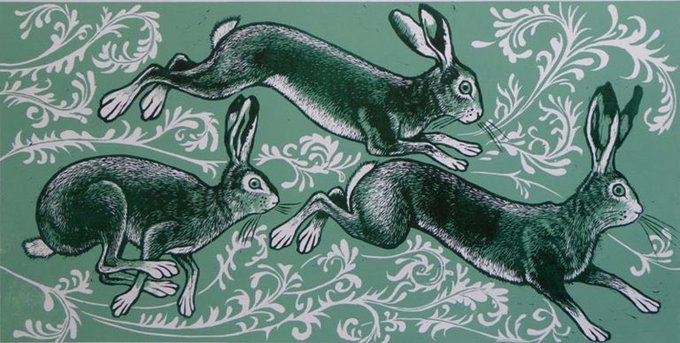Norse legend says that when Christianity triumphed over paganism, the old gods retreated to the rivers. Aegir was once a kindly god who stilled storms and calmed rough seas, but after being forced to take refuge in the River Trent, he demanded three lives a year #MythologyMonday
Richard the Lionheart is said to have brought the first swans to England after the Crusade, and for centuries swans have been royal property. A person’s ‘swan song’ - his final work - derives from the belief that a swan will sing only once - just before they die #MythologyMonday
Today is the feast day of St Thomas the Apostle, patron saint of doubters and architects. His unwillingness to believe that the other Apostles had seen Christ rise on the Easter Sunday earned him the title of ‘doubting Thomas’ #feastday #folklore #july #architects #doubt
“For don’t you see
A spotted thrush,
One thrush or two,
Or even three,
In every laden elder-tree?
They pull and lug,
They flap and push,
They peck and tug
To strip the bush;
They have forsaken
Snail and slug;
Unseen I watch them, safe and snug!”
#FolkloreThursday
The builders of Stonehenge certainly showed great perseverance; the sarsten stones were believed to have been brought from Marlborough Downs, 20 miles away, and the bluestones from the Preseli Hills in Wales. They weigh between 2 and 5 tonnes each! #MythologyMonday #stonehenge
“The hare, call him scotart,
big-fellow, bouchart,
the O’Hare, the jumper,
the rascal, the racer. The starer, the wood-cat,
the purblind, the furze cat,
the skulker, the bleary-eyed,
the wall-eyed, the glance-aside
and also the hedge-springer”
The patroness of arts and crafts, called Brigantia in Britain and Brigit in Ireland, also left her mark on watery place names. The name of the River Braint in Anglesey is derived from Brigantia, as is that of the Brent in Middlesex #Folklore #waterlore #goddess #river














